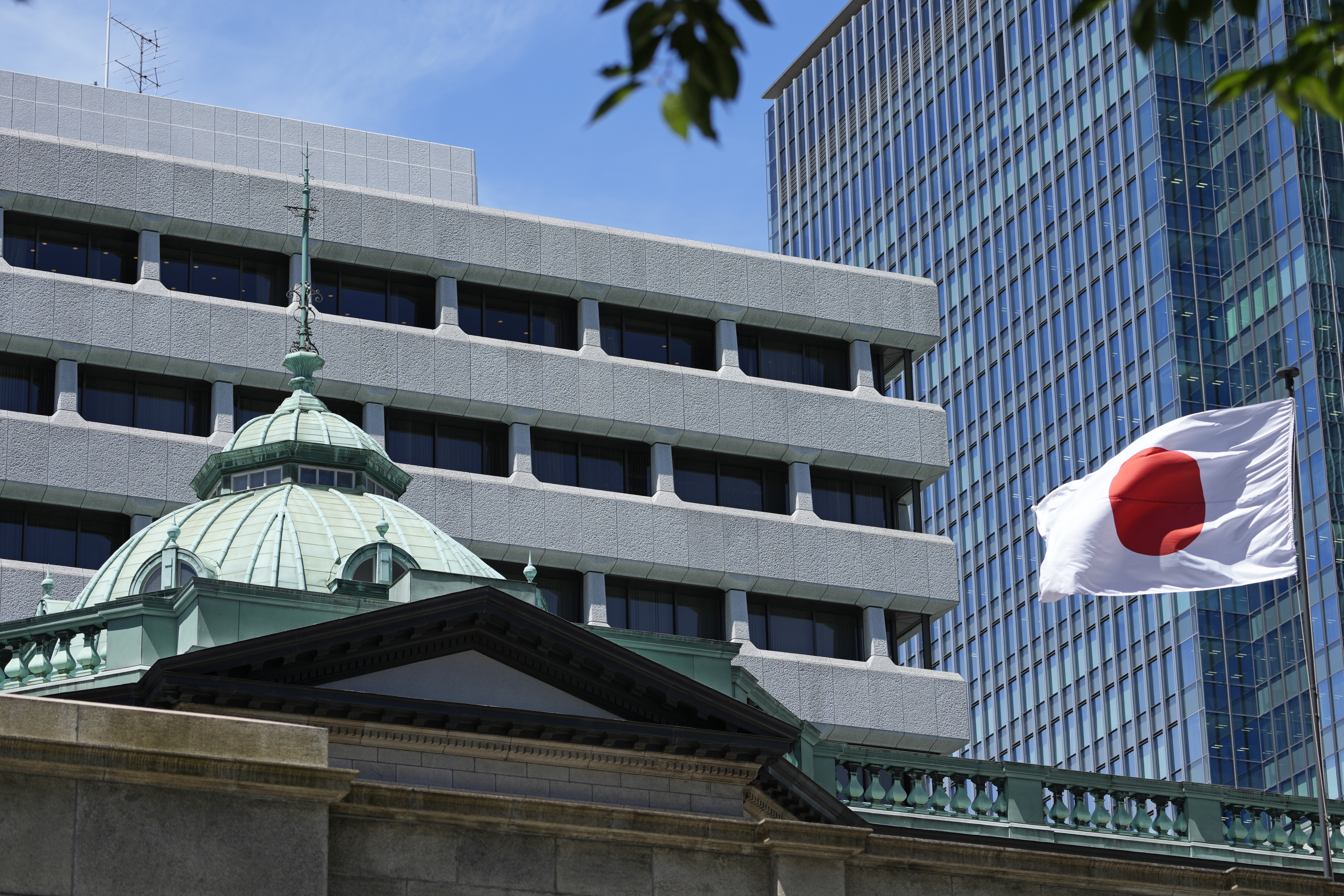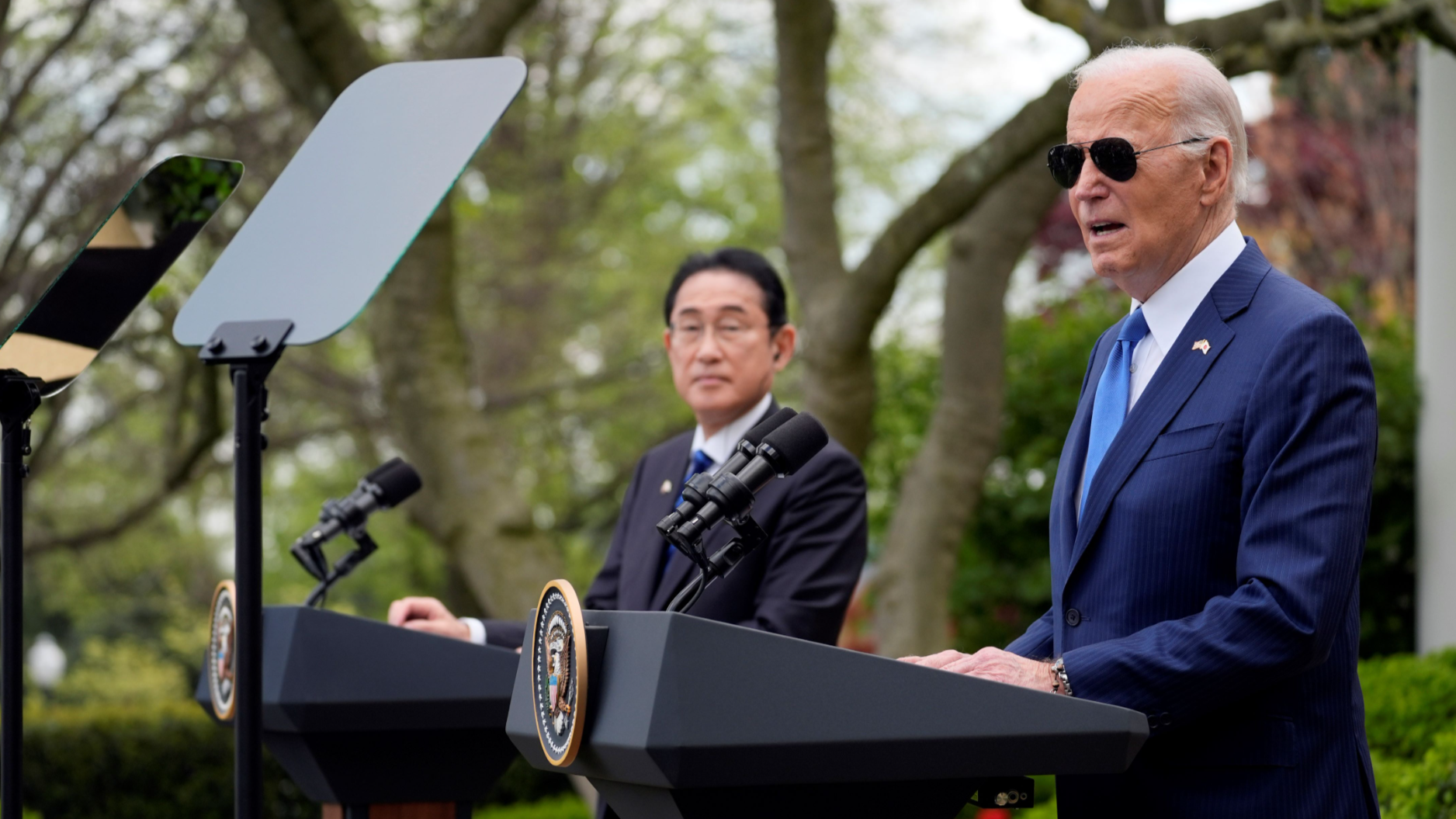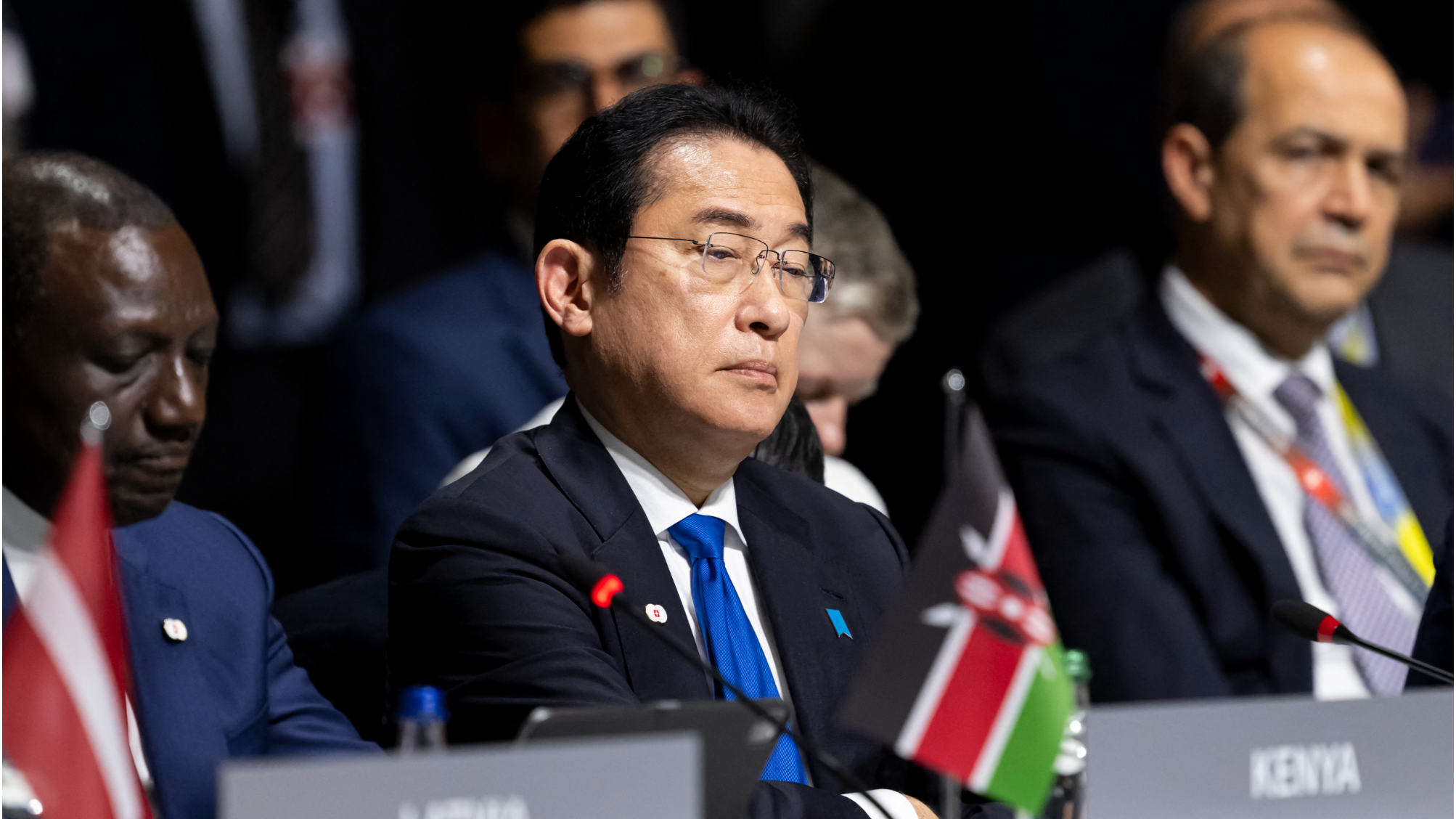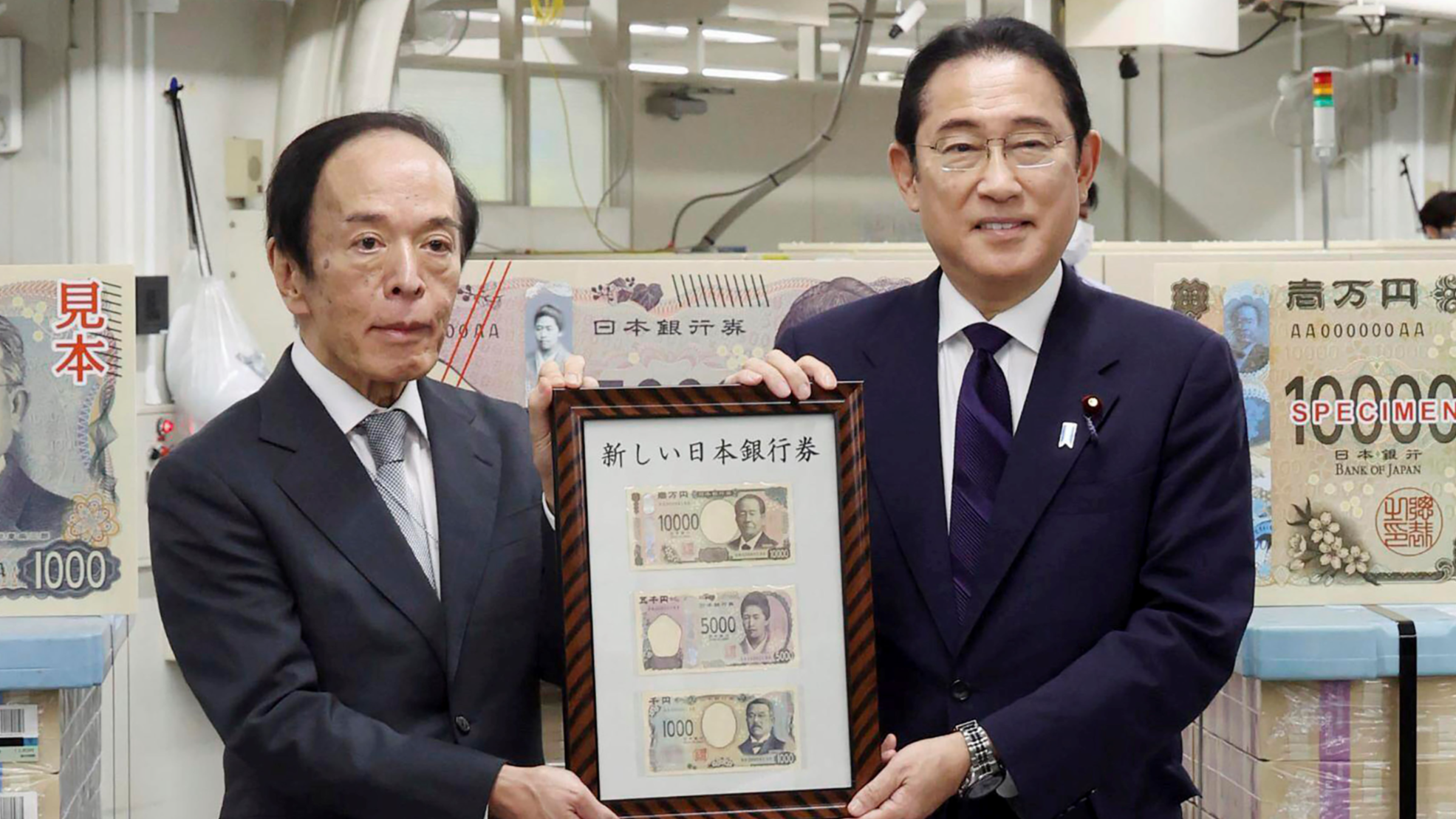
Japan’s 2024 defense white paper, released on July 12, pursues a policy of strengthening its own military power by exaggerating the “China threat”, a move in line with the wishes of the United States but not conducive to regional stability, experts said.
The white paper reiterated strong concerns about China’s military trends. It claims that the Chinese mainland has intensified military activities around the Taiwan region aimed at establishing a fait accompli while simultaneously improving its combat capabilities.
ALSO READ: Rebooting Sino-Japanese relations
“People say there is a crisis concerning Taiwan but I have heard that the local people living in Taiwan are not particularly aware of this,” said Masashi Tani, secretary-general of the Tokyo-based Forum for Peace, Human Rights and Environment.
“Japan is exaggerating the issue to a greater extent than necessary in order to strengthen its own military power,” he said.
“By greatly inflating the problem, the Japanese government is following the policy of strengthening its military capabilities, which, in reality, aligns with the US’ wishes.”
Total expenses for Japan’s Defense Buildup Program and complementary initiatives for the 2024 fiscal year amount to 8.9 trillion yen ($56 billion), approximately 1.6 percent of the country’s gross domestic product at the time the National Security Strategy of Japan was formulated in 2022, according to the white paper
Some Japanese officials claim that “a Taiwan contingency is a Japan contingency.” This claim has become a sort of buzzword and is taken lightly, said Satoshi Tomisaka, professor at the Institute of World Studies at Takushoku University.
READ MORE: Respect one-China principle, Japan urged
“There are countless political approaches Japan can take to prevent a Taiwan contingency from becoming a reality. The fact that no such efforts are evident from Japan while bold statements are made by government officials is a symbol of Japan’s deterioration,” Tomisaka said.
The atmosphere of “a new Cold War” is rising, and the US military is asking Japan to take on some roles. Japan is losing its traditional caution amid US intensifying antagonism against China and getting numb toward the danger of viewing neighboring countries as enemies, he said.
According to the white paper, total expenses for Japan’s Defense Buildup Program and complementary initiatives for the 2024 fiscal year amount to 8.9 trillion yen ($56 billion), approximately 1.6 percent of the country’s gross domestic product at the time the National Security Strategy of Japan was formulated in 2022.

The Japanese government allocated 7,724.9 billion yen for annual expenditure for 2024, up 17 percent from the previous fiscal year. It also allocated 9,362.5 billion yen on a contract basis — an increase of 4.6 percent year-on-year — to start equipment procurement and facility development of the Self-Defense Forces that extend across multiple years, said the white paper.
ALSO READ: Tokyo governor’s reelection offers relief to ruling party
“The Japanese defense white paper is also a defense budget book which aims to secure financial resources for Japan’s massive military buildup,” said Huang Xingyuan, representative director of China at the Japan-China Friendship Center.
“In fact, it is to create public opinion for Japan to expand its armaments, increase its defense budget, and break through certain military constraints.”
Additionally, Huang said creating an atmosphere of tension in the Taiwan Strait is also aimed at addressing domestic issues in Japan.
When there are domestic political problems or low government approval ratings, Japan tends to divert conflicts outward, Huang noted.
The approval rating for Japanese Prime Minister Fumio Kishida’s cabinet dropped 0.9 percentage points from June to 15.5 percent in July, according to a poll conducted by Jiji Press.
This marked a new low since Japan’s ruling Liberal Democratic Party (LDP) returned to power in December 2012. The low approval rating reflects a backlash caused by a slush fund scandal involving some LDP factions.
“In order to seek reelection as president of the LDP, Kishida has exaggerated the ‘China threat,’” Huang said.
“Moreover, to expand its international influence and discourse power in politics and defense, Japan has been creating concepts like ‘China threat’ to justify a series of hardline policies,” he added.

Satoshi Shirai, an associate professor specializing in social thought and political science at Kyoto Seika University, said Washington demands that Tokyo strengthen its military capabilities to help the US maintain its global hegemony.
“On the Japanese side, there is a desire not to fully comply with the US strategy, given the vital importance of economic relations with China,” said Shirai.
“However, due to historical circumstances, Japan cannot distance itself from the US and has agreed to significantly enhance its military power,” he added.
According to Shirai, while Japan agrees when the US asks for cooperation to contain China, considering its economic relationship with China, it cannot possibly engage in any decisive confrontation.
Japan’s Ministry of Defense said tax measures — which will affect corporate, income, and tobacco taxes — will be implemented gradually over several years to secure financial resources for military buildup
Shirai said Japan’s current military buildup focuses more on purchasing US-made weapons than on substantially improving Japanese military capabilities. This also reveals the slavish subservience to the US that exists in the Japanese government and political circles.
Ryuhei Nishikawa, chairperson of the Democratic Youth League of Japan, warned that military buildup increases the risk of conflict in the region.
READ MORE: Kishida push for constitutional change opposed
“Some forces push for military expansion because it is profitable, even though they don’t believe wars will happen. However, military expansion without a means for war will still increase tensions and, somewhere, an accidental conflict might occur, leading to war,” Nishikawa said.
Believing that military expansion increases the risk of war, Nishikawa joined nearly 300 young people from all over Japan in a protest march in Tokyo on June 30, opposing the government’s massive military buildup and attempts to revise the constitution.

“If left unchecked, Japanese politics will create tension in East Asia. Therefore, it is our responsibility as citizens and youth to convey this danger and ensure that the country does not move in that direction,” he said.
Japan’s Ministry of Defense said tax measures — which will affect corporate, income, and tobacco taxes — will be implemented gradually over several years to secure financial resources for military buildup.
Tani — from the Forum for Peace, Human Rights and Environment — said the reality for the Japanese government is the budget needed for large-scale military buildup can only be obtained through tax increases but citizens have a very strong aversion to tax increases.
ALSO READ: Japan's ruling LDP loses 3 lower house seats in by-elections
“Because mentioning this would provoke a public backlash, the government is proceeding ambiguously and plans to increase taxes at some point when people have forgotten about it. However, citizens are not that naive,” said Tani.
Huang, from the Japan-China Friendship Center, agreed that the public would oppose tax hikes but said the Japanese government knows they can take the step of raising taxes for military expansion as the resultant public dissatisfaction would not endanger the regime.
Contact the writer at jiangxueqing@chinadaily.com.cn


